
News
Behind the Headlines
Two-Cents Worth
Video of the Week
News Blurbs
Articles
Testimony
Bible Questions
Internet Articles (2015)
Internet Articles (2014)
Internet
Articles (2013)
Internet Articles (2012)
Internet Articles (2011)
Internet Articles (2010)
Internet Articles
(2009)
Internet Articles (2008)
Internet Articles (2007)
Internet Articles (2006)
Internet Articles (2005)
Internet Articles (2004)
Internet Articles (2003)
Internet Articles (2002)
Internet Articles (2001)

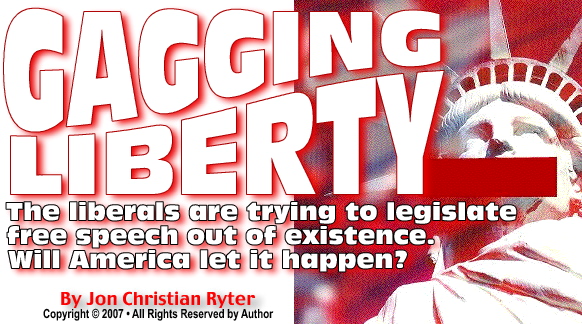
![]() n
1795, a year before President George Washington left office,
Thomas Pinckney negotiated Jay's Treaty with England
to settle border disputes, and another with Spain (The Treaty
of San Lorenzo) that gave the United States access to the Mississippi
through New Orleans. The French believed that Jay's Treaty
was a signal that America had once again become pro-British. France
attempted to extort a cash settlement from the United States to
reimburse the French for its assistance in the Revolutionary War
(known as the XYZ Affair). Hostilities began to flare.
n
1795, a year before President George Washington left office,
Thomas Pinckney negotiated Jay's Treaty with England
to settle border disputes, and another with Spain (The Treaty
of San Lorenzo) that gave the United States access to the Mississippi
through New Orleans. The French believed that Jay's Treaty
was a signal that America had once again become pro-British. France
attempted to extort a cash settlement from the United States to
reimburse the French for its assistance in the Revolutionary War
(known as the XYZ Affair). Hostilities began to flare.
Silencing the people, 1797
Shortly after John Adams was inaugurated as the nation's 2nd president, pitched battles between the US and French fleets commenced on the high seas. In 1798 Adams pushed Congress to enact several repressive measures against American citizens of French extraction. One of them was The Naturalization Act. Under that law, French immigrants had to wait 14 years—rather than 7—before they could apply for American citizenship.
.jpg) Another
Federalist law made it a crime to ridicule the President of the
United States—or criticize his decisions. Because the repressive
measures implemented by the Federalists blatantly violated the liberties
guaranteed by the Bill of Rights, Adams was viewed with growing
trepidation not only by his political detractors, but by many of
those who voted for him. Because
the Revolutionary War touched every family in the United States,
the Constitution and the Bill of Rights held a special meaning to
them—unlike Americans today who think nothing of desecrating
their flag and disrespecting the symbolism of the Stars and Stripes
under the guise of freedom as they use the Constitution to destroy
the republican form of government their ancestors died to secure.
Another
Federalist law made it a crime to ridicule the President of the
United States—or criticize his decisions. Because the repressive
measures implemented by the Federalists blatantly violated the liberties
guaranteed by the Bill of Rights, Adams was viewed with growing
trepidation not only by his political detractors, but by many of
those who voted for him. Because
the Revolutionary War touched every family in the United States,
the Constitution and the Bill of Rights held a special meaning to
them—unlike Americans today who think nothing of desecrating
their flag and disrespecting the symbolism of the Stars and Stripes
under the guise of freedom as they use the Constitution to destroy
the republican form of government their ancestors died to secure.
John Adams believed that French radicalism would fracture the fledgling nation causing a second revolutionary war. Only this time, with French-Americans. Congress passed the Aliens and Sedition Act of 1798 to stifle criticism of the presidency because of the other repressive measures that had already been enacted. Anyone who has read the Constitution knows the laws enacted by the Adams Administration were unconstitutional. As men who had fought the British to win liberty—and the right to free speech—were arrested, many of those who were afraid to speak out saw, firsthand, that despots can be American as well as British.
The first
victim of the Aliens and Sedition Act was Matthew Lyon,
a Congressman from Vermont. Lyon's "crime" was a statement
made in a letter published in a Vermont newspaper. Lyon said
that with the federal executive "...every consideration of the
public welfare is swallowed up in a continual grasp for power, and
unbound thirst for ridiculous pomp, foolish adulation, and self
avarice." Lyon was arrested and brought before US Supreme
Court Justice William Paterson where he was found guilty
of sedition. He was sentenced to four months in prison and fined
$1,000. 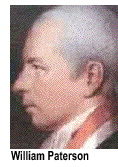 His
property was about to be auctioned off to pay his fine when his
friends raised the money to pay his fine. Not only was Lyon
found guilty of sedition, so was the newspaper publisher who printed
his article. (So much for the 1st Amendment and freedom of the press.)
Liberty lasted ten years before the federal government violated
the Constitution.
His
property was about to be auctioned off to pay his fine when his
friends raised the money to pay his fine. Not only was Lyon
found guilty of sedition, so was the newspaper publisher who printed
his article. (So much for the 1st Amendment and freedom of the press.)
Liberty lasted ten years before the federal government violated
the Constitution.
Thomas Cooper was the second man convicted of violating the Alien and Sedition Act. His "crime" was speaking out in defense of another man, Jonathan Robbins, who was also accused of violating the law. Cooper declared the law to be "...without precedent, without law and against mercy." Cooper received no mercy. He was also sentenced to four months. And his home, lands and property were seized to satisfy the $1,000 fine.
When the fourth lawbreaker, James T. Callender was hauled into the Supreme Court and faced Justice Samuel Chase, his lawyers raised the question of the legality of the law, which obviously violated the Bill of Rights. Chase refused to listen to their legal argument and threw out the briefs they had filed with the court, chastising the lawyers for bringing such a pathetic argument into court. They left the courthouse in disgust, leaving their client to the mercy of Chase. Chase showed none. Four months and $1,000. Chase, who was appointed to the high court by President George Washington, became the first Supreme Court Justice to be impeached. His impeachment , which took place in 1804, was based largely on his conviction of Callender but the charges concerned his handling of several "political trials." With 34 Senators, John Randolph, who prosecuted Chase in his Senate trial, needed 24 votes to remove Chase. In 1804, there were 25 Jeffersonian Republicans and 9 Federalists in the Senate. Chase should have easily been removed, but Jefferson meddling in what was known as the "Yazoo Land Fraud" upset several Republicans and they voted to keep Chase, whom Jefferson wanted removed, on the bench.
A highly respected New York jurist, Judge Jared Peck distributed a petition to force Congress to vacate such an unconstitutional law. He collected hundreds of signatures. As he was collecting his signatures, a secret grand jury in New York indicted him of sedition. A bench warrant was issued for his arrest. Police officers came to his home during a family gathering and arrested him like a common criminal. That was a mistake for the Adams Administration.
Peck was one of the most respected jurists in America. The spectacle of his arrest raised the hackle of every American. The media decided to fight back. It was because of the arrest and conviction of Peck that the Kentucky and Virginia Resolves were written, crushing for over 100 years the attempts of the federal government to subjugate the citizens of the United States with laws that violate the Constitution and the Bill of Rights.
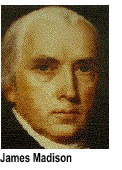 More
important, the Kentucky and Virginia Resolves took
the federal government to task. James Madison, who authored
the Virginia Resolve reminded the central government that
the States had surrendered only a small portion of their power to
the federal government and that, whenever the federal government
usurped its authority, the States would interfere and take that
power back. The States need to remember this today—and
act upon it. The federal government is subservient to the States
not the other way around. The unconstitutional New Deal laws
of the Roosevelt Era usurped the superior aurhtority of the
States as the welfare feeding troughs were build along Pennsylvania
Avenue from the White House to Congress.
More
important, the Kentucky and Virginia Resolves took
the federal government to task. James Madison, who authored
the Virginia Resolve reminded the central government that
the States had surrendered only a small portion of their power to
the federal government and that, whenever the federal government
usurped its authority, the States would interfere and take that
power back. The States need to remember this today—and
act upon it. The federal government is subservient to the States
not the other way around. The unconstitutional New Deal laws
of the Roosevelt Era usurped the superior aurhtority of the
States as the welfare feeding troughs were build along Pennsylvania
Avenue from the White House to Congress.
The Kentucky Resolve went a step farther than the Virginia Resolve and made it clear that the States retained the power to nullify any federal law; and that the Resolves did, in fact, when delivered to the Congress, nullify the Aliens and Sedition Act. This is a Constitutional prerogative possessed by the States to nullify laws with which they disagree—particularly since the illegally ratified 17th Amendment removed the States from the equation of power in the central government.
When Jefferson was elected, he released from prison everyone still incarcerated for violations of the Aliens and Sedition Act. Because of the legal precedent created by the Kentucky and Virginia Resolves, the States may enact a Resolve to nullify any federal law they feel exceeds the authority they gave the federal government. In fact, when South Carolina threatened to write a Resolve to dissolve the Union in 1858, the Administration of President Franklin Pierce threatened to send federal troops into South Carolina if they submitted such a document to Congress. It appears that the federal government believed in the power of a State Resolve. The impact of the Aliens and Sedition Act on the American people was earth-shattering. Adams lost his bid for re-election in 1800. Thomas Jefferson, who served as Adam's vice president, ran as a States-right Democratic-Republican and was elected as America's third president.
After 1802, no Federalist candidate would ever be elected. The Aliens and Sedition Act became a stigma that destroyed that political party. In 1804 Thomas Pinckney ran as a Federalist against Jefferson and received 14 electoral votes to Jefferson's 162. The last candidate to run as a Federalist was Rufus King who ran against James Monroe. King took 34 electoral votes against 183 for Monroe. When John Quincy Adams (the son of the second president) ran against Monroe four years later, Adams took only one electoral vote and lost in the biggest landslide in the history of American politics. Those who shed their blood so that their children could live without fear of their government discovered that politicians cannot be trusted. And, as they did in 1800, Americans learned early (although of late we've forgotten) that, when the rascals attempt to steal liberty from the people, it is time to not only turn them out of office, but to erase their political parties from existence.
Mugging the Media in 1910
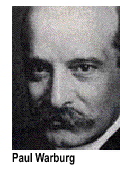 In
1910, when Congress was contemplating transferring the wealth of
the American people to the same cabel of international bankers and
industrialists who owned all of the central banks of the industrialized
world, the money mafia realized it somehow needed to seize control
of the media to prevent the fourth estate from warning the American
people what was afoot.
In
1910, when Congress was contemplating transferring the wealth of
the American people to the same cabel of international bankers and
industrialists who owned all of the central banks of the industrialized
world, the money mafia realized it somehow needed to seize control
of the media to prevent the fourth estate from warning the American
people what was afoot.
That fraud could not have
been successfulky promulgated without the help—or silence—of
the media. It was precisely for that reason that the Rothschild
dynasty bought controlling interest in Reuters International
News Service in London, Havas News Agency in France and
Wolfe in Germany; 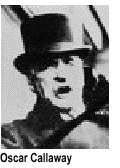 and
why Fed Chairman Paul Warburg and his father-in-law Solomon
Loeb bought a major stake in the New York Times.
and
why Fed Chairman Paul Warburg and his father-in-law Solomon
Loeb bought a major stake in the New York Times.
The money barons knew there was much truth to the adage that whomever controls the news controls the hearts and minds of the man on the streets. J.P. Morgan apparently agreed with that adage according to Congressman Oscar Calloway. In March, 1915 Calloway placed the following comment in the Congressional Record: "J.P. Morgan interests...got together with twelve men high up in the newspaper world and employed them to select the most influential newspapers in the United States...to control generally the policy of the daily press of the United States. These men...select[ed] 179 newspapers, and then began by an elimination process to retain only those necessary for the purpose of controlling [the news]. They found it was necessary to purchase control of 25 of the greatest newspapers."
Censoring the Media, 1933
Censoring the media was
a fairly simple task for Lenin in 1917, for Mussolini in 1924, and
for Hitler in 1933. They simply issued an edict and it was done.
It was not that easy for Franklin D. Roosevelt. However,
the US Constitution prevents the government from interfering with,
or abridging, the freedom of the press. 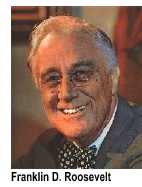 Since
FDR could not censor the media—something he attempted to do
several times between 1933 and his death in 1945—he did the
next best thing. He decided to regulate it through licensing so
he could threaten to revoke the newspaper's licenses whenever he
felt the need to control the flow, or content, of the news reaching
the American people.
Since
FDR could not censor the media—something he attempted to do
several times between 1933 and his death in 1945—he did the
next best thing. He decided to regulate it through licensing so
he could threaten to revoke the newspaper's licenses whenever he
felt the need to control the flow, or content, of the news reaching
the American people.
Among the priority pieces of legislation pushed through Congress by FDR was the Communications Act of 1933, enacted on June 19. It created a commission to license and regulate the transmission of news communications by telephone, telegraph, cable and radio. Since radio stations would have to apply for a federal license to use the airwaves, Roosevelt had leverage over them since each needed the Commission's approval to get and keep their license to broadcast. However, even though radio and TV require a special license, newspapers operate with impunity from government interference.
When Congress was debating the Communications Act of 1933, Roosevelt determined the newspaper industry had to be regulated. Since newspaper advertising rates are theoretically based on circulation, FDR decided an agency was needed to police the circulation statistics of the industry to protect advertisers from the unsubstantiated circulation claims of unscrupulous publishers. However, before Congress could act, the American Newspaper Guild funded the creation of an independent circulation auditing body, the Audit Bureau of Circulation, to police the circulation claims of its members. In doing so, it depriving Roosevelt of his excuse to act in the compelling interest of the American people. FDR was not pleased. But the creation of the Audit Bureau of Circulation did not deter him from his attempt to create a federal agency to control the fourth estate.
Roosevelt was determined to muzzle the media because he was convinced that the American people, if they understood the full ramification of what the New Deal meant in terms of controls not only over business and industry, but over their own liberties as well, would mount such a storm of protest that it would derail the New Deal before it could be wholly implemented.
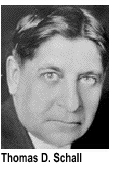 One
of Roosevelt's strongest detractors of his attempt to censor
the press was Senator Thomas D. Schall [R-MN], whose chastising
correspondences to Roosevelt were sent to the newspapers
in Washington who printed the exchange between Roosevelt
and Schall as the Communications Act was being debated
by Congress. Schall, who was blinded in 1907 when he was
accidently electrocuted won a seat in the House of Representatives
in 1914 and the Senate in 1925. Schall
was a thorn in Roosevelt's side until he was struck by a
car and killed on December 22, 1935 crossing Pennsylvania Avenue
in Washington, DC.
One
of Roosevelt's strongest detractors of his attempt to censor
the press was Senator Thomas D. Schall [R-MN], whose chastising
correspondences to Roosevelt were sent to the newspapers
in Washington who printed the exchange between Roosevelt
and Schall as the Communications Act was being debated
by Congress. Schall, who was blinded in 1907 when he was
accidently electrocuted won a seat in the House of Representatives
in 1914 and the Senate in 1925. Schall
was a thorn in Roosevelt's side until he was struck by a
car and killed on December 22, 1935 crossing Pennsylvania Avenue
in Washington, DC.
Schall singlehanded derailed Roosevelt's efforts to create a federal agency to regulate newspapers. As a result, FDR was only able to regulate radio and television. Congress used the Pennsylvania Avenue shell game to convince the American people that the 1st Amendment prohibition against regulating the media only applied to newspapers by construing "press" in the 1st Amendment applied only to the printed media. While the federal courts have construed that the 1st Amendment applies equally to radio, TV and the Internet, the government's ability to deny licenses to media companies, or to fail to renew them, gives Uncle Sam a lot of leverage over the content of the news and the media executives who answer to shareholders.
For 210 years the federal government have been trying to gag the voice of the people so they can impose a parliamentarian dictatorship over America. The damage Roosevelt caused to the Constitution has proven to be irreparable. As in any oligarchic system, the architects of Roosevelt's political shell game successfully manipulated America's perception of precisely where their rights originated, and upon whose authority those rights were granted. The Constitution has successfully been undermined with the federal government assuming the paternal role as grantor of individual rights and liberties.
Once the federal government has been construed by the people as the source of individual rights, it then stands to reason the government possesses the legal authority to withdraw, or amend, whatever individual rights it feels are either unnecessary or unwarranted, or are counterproductive to the government's agenda. When the people no longer possess the right to protest the utopian notions of government, liberty will have been successfully erased. Once the federal government is construed as the source of individual rights, government will possess the legal authority to withdraw, or amend, whatever individual rights it feels are either unnecessary or unwarranted, or are counterproductive to the government's plans for your future.
Gagging the People, 2007
With the Democrats taking control of both Houses of Congress, incoming Senate Judiciary Chairman Patrick Leahy flexed his new-found clout to ram The War Profiteering Prevention Act of 2007 through the Senate in October, 2006—three months before the Democrats assumed control of the upper chamber. With it, Leahy helped the left-leaning GOP enact The Effective Corruption Prosecution Act of 2007. Both pieces of legislation were designed, first, to show the voters that the GOP was serious about reining in lobbyists like Jack Abramoff and, second, that the Bush-43 Administration was serious about prosecuting defense contractors who overpriced the goods they sold the government in times of war. The legislation also intended to prosecute those accused of either earning excessive profits from the war, or accused of bribing government officials for contracts. Quietly added to The War Profiteering Prevention Act was an amendment authored by Senator Lindsay Graham [R-SC] that was so controversial nobody wanted to talk about it. So they didn't.
The Bush Administration hired private contractors to perform jobs that were exclusively done—in war zones—by military personnel. Among the concessions negotiated by defense contractors like Haliburton was immunity from the military rules that govern the conduct of troops in theaters of war. The concessions granted civilians contractors immunity from prosecution by the military or by civil or criminal prosecution in Iraqi or Afghan courts. Civilians charged with civil or criminal offenses had to be tried by civilian courts in the United States. (From the Civil War to World War II, several civilians have been charged with crimes by the military and tried in military courts. In every case it has heard in the last 50 years the US Supreme Court has ruled that military tribunals have no jurisdiction over civilians.)
The argument advanced by the courts has been that when Congress enacted The Posse Comitatus Act of 1878 it eliminated any jurisdiction the military had over civilians—even on military reservations or in war zones. Those opposed to military jurisdiction over civilians—even in war zones—argue that civilians can't be prosecuted in military courts because they don't receive grand jury hearings and they are not judged by " their peers," but by members of the military whose views are influenced by the Uniform Code of Military Justice rather than the civilian tenets of the rule of law.
"The Supreme Court," said Eugene Fidell, president of the National Institute of Military Justice, "has been quite hostile to trying civilians in a court-martial. On the other hand, the military justice system is more robust and has more protections in it than it did back in the 1950s." It also blatantly ignores the Bill of Rights which hamstrings prosecutors looking for quick convictions. (That, of course, is why the globalist legislators on both sides of the aisle who are behind the utopian scheme to create world government need to vacate the Bill of Rights—legislatively or by reinterpretation by the judiciary.
And, that is also the reason that the Democratic majority is attempting to stifle free speech from conservative grass roots organizations by introducing the Legislative Transparency and Accountability Act of 2007 [aka Commission to Strengthen Confidence in Congress Act of 2007] that is purported, by the liberals who promised the most transparent government since the Clintons, to be a piece of legislation that will bring lobbying firms who buy legislation out of the dark and into the light of day. Like most pieces of legislation offered by Congress over the last 100 years, this bill will do the exact opposite.)
Section 220 of Senate Bill S.1 (like Nancy Pelosi's 2006 House clone, H.R. 4682) was designed specifically to financially hamstring conservative 527s like the Swift Boat Veterans for Truth who were primarily responsible for John Kerry's losing the Election of 2004. However, it will also hamstring every major political action committee [PAC] political watchdog advocacy group—even those who do not get actively involved in the election process. Section 220 will obligate PAC groups to get Congress' permission before they could report to their constituents on the important issues Congress is dealing with that will impact their lives.
If S.1 had been law during the 2004 Election, the Swift Boat Veterans for Truth would have had trouble existing. If S.1 had been law during the Clinton years, Judicial Watch, Accuracy in Media, Media Research Center, the Eagle Forum, Freedom Alliance, the American Conservative Union, Gunowners of America, Citizens Against Government Waste, Club for Growth and a myriad of other political advocacy groups would have been forced to raise additional hundreds of thousands of dollars to pay for the paperwork the new law would trigger—or be forced to close their doors or risk federal charges for violating the Legislative Transparency Act (which, of course, was designed to provide opaqueness to government, not transparency).
If the House and Senate versions of the Legislative Transparency and Accountability Act of 2007 are merged in jont conference and signed into law by Bush, S.1 and H.R. 4682 will unconstitutionally condition the 1st Amendment on Congressional approval—and PAC groups that are specifically protected by the Bill of Rights will be forced to endure tons of paperwork and incur thousands of dollars of additional costs (that most of the PAC groups don't have) before they could warn the American people about covert shenanigans being engaged in by Congress..
Congressional watchdogs in the nation's capital do what our elected officials haven't done since March 9, 1933—most of them actually read the legislation that Congress votes into law. That's how Louis Sheldon of the Traditional Values Coalition discovered that the Commission to Strengthen Confidence in Congress Act of 2007 (and the House version, the Legislative Transparency and Accountability Act) sponsored by Senate Majority Leader Harry Reid [D-NV] and cosponsored by Senators Mitch McConnell [R-KY], Robert Bennett [R-UT], Susan Collins [R-ME], Trent Lott [R-MS], Jim Webb [D-VA], Chuck Schumer [D-NY], Joe Lieberman [I-CT], Frank Lautenberg [D-NJ], Richard Durbin [D-IL], Maria Cantwell [D-WA], Sherrod Brown [D-OH], Dianne Feinstein [D-CA], Patrick Leahy [D-VT], Robert Menendez [D-NJ], Ken Salazar [D-CO] and Debbie Stabenow [D-MI] contained a provision that would effectively muzzle conservative political action committees by classifying PAC groups as lobbyists.
Once again, Congress intended, very deliberately, to undermine the Bill of Rights and infringe upon the free speech right of the American people, and the right of the people to petition their government for redress. The new law, intended to hamstring conservative watchdog PAC groups will require that PACs which receive financial support from as few as 500 grassroots activists fill out onerous bureaucratic forms and submit them to the Democratically-controlled Congress. The legislation imposes severe cilvil and potentially criminal penalties against those PAC groups that fail to register as lobbyists and fail to provide the government with the required information.
Among that information the PACs will be required to share will be the names of that organization's donors—just as political candidates are required to submit a list of their contributors to the Federal Election Commission. PAC groups guard their donor lists and it is not likely any of them will surrender them without a court fight since they know, from experience those lists will somehow end up in the hands of the IRS—who will be encouraged by the liberals to audit their returns—or at least frighten the taxpayers into not supporting rightwing organizations.
In the eleventh hour, Senate Ethics bill cosponsor and Minority Leader Mitch McConnell [R-KY] single-handedly spiked the provision that would classify PAC groups as lobbyists by adding his own amendment to S.1, effectively killing the provision that would reclassify of watchdog groups as lobbyists. I know this because, like you, I watched McConnell assure the viewers of Fox News that he had done so.
That's where the shell game begins. If you've ever played the shell game, you know this is where you really have to watch that elusive little pea. The pea, in this case, is McConnell's amendment to alter S.1, Section 220. If you've ever been "taken" in the shell game—and whether you realize it or not, you are everytime Congress passes a piece of legislation—the pea never ends up where you thought it should because the pea is always removed during the shuffle. You won't see it when McConnell's amendment is removed during the Joint Committee shuffle.
When I watched the McConnell press conference in which the Senator announced that he had eliminated a provision designed to gag conservative activists before Hillary Rodham Clinton—who has officially announced she is seeking an office she cannot constitutionally hold—begins her campaign for the White House. Hillary cannot afford for the American people to know she is constitutionally prohibited from running for President. Nor does she want the American people reminded of Whitewatergate, Travelgate, Filegate, Chinagate and, most of all, Fostergate since, other than Chinagate, all of the Clinton scandals were actually Hillary Clinton faux paus rather than Bill Clinton scandals.
Here's how the shell game works. When a piece of legislation is enrolled in the House or Senate, a companion bill must be enrolled in the other House. That's how a bicameral legislature works. For a bill to become law it must pass through both Houses of Congress. Once passed by both Houses, the bill goes into Joint Conference where the differences between the two separate bills are ironed out. Provisions in the bill offered by one House that are not in the bill from the other House are dropped. That is what is going to happen to the McConnell provision. When McConnell's amendment was added to S.1, it became the pea. After showing the shill (who is about to be conned) the pea under one of the three walnut shells, the huckster lifts the remaining two walnut shell to show the shills there is no pea under them. As the shill's eyes are focused on the two shells, the huckster palms the pea from under the first shell. When the game begins, there is no pea under any of the shells.
That's why the hucksters always win. Convinced that I was watching the huckster's "come-on" to pull the suckers into the shell game, I contacted a couple of acquaintances on the Hill (and one former Congressman, B-1 Bob Dornan whom we need to get back on the Hill—preferably in the Senate). I wanted to find out what anti-PAC poison provisions were in HR 97, the House version of the legislation, Accountability and Transparency in Ethics Act of 2007 that was enrolled on Jan. 4, 2007.
The rather innocuous email reply of one of them told me that we—conservatives and/or anti-Hillary voters in general—might be in deep do-do. He told me, first, that "...our guys were generally glad to hear that grassroots groups were taken out [of Section 220]." It's important to remember that here are hucksters on both sides of the aisle that, at times, don't want what they are doing scrutinized too closely—particularly how they vote on legislation that infringes on the Constitutional rights of their constituents. In any event, the email continued: "But the truth is...we don't even need to take up the Senate bill in order to be on record on ethics reform." My friend is suggesting that there are no relevant provisions in HR 97 that mirror Section 220, thus, those provisions that would penalize PAC groups are theoretically dropped in Joint Conference.
I said theoretically because when the National ID Card was discovered in HR 220, the Comprehensive Anti-Terrorist Act of 1995, the internal passport was dropped like a hot potato from the House version of the bill. And even though that same provision was passed in the Senate version of the same bill, civil rights groups assured us that the Gestapo-style National ID Card that Bill and Hillary Clinton first inserted in Hillary's Health Security Act as a health benefits card (with a tracking chip) was dead on arrival, and the Senate provisions would be dropped in Joint Conference (see Whatever Happened To America, pgs. 223-230).
Only the ID card, which did not appear in the House version of the Anti-Terrorist bill, ended up in the version signed into law by Bill Clinton. The House version of the National ID Card was surreptitiously inserted into the House version of the Omnibus Budget Bill of 1996 when no one was looking.
Remember the shell game? Always keep your eye on the pea. Also remember this: while the co-presidency of Bill and Hillary Clinton demanded the National ID Card and had it inserted in three different pieces of legislation during their reign, it was still the GOP Congress that allowed it to slip past them in Joint Conference and, quite illegally, had the House and Senate versions of that edict signed into law in two separate bills—and then allowed them to be sandwiched together by the Clinton bureaucracy which tried to implement it through National Highway Traffic Safety Administration regulation 98-3945.
Affirming that the National ID Card was now "the law of the land," not one Congressman or Senator challenged its legality by filing a petition with the Supreme Court to argue that provisions from two different laws that appeared only in measures offered by one of the two House of Congress, cannot be construed as "law." Three Congressmen set out to do battle with the leadership of the House. Former Congressman Bob Barr [R-GA], Ron Paul [R-TX] and former Congressman Michael "Mac" Collins [R-GA] attempted to defund the implementation of the National ID card which was now posing as a national drivers' license.
The silent, behind the scenes battle that never made it into the New York Times, the Baltimore Sun, Washington Post or the Washington Times began on Tuesday, July 28, 1998 and concluded on Tuesday, Oct. 6, 1998 when then Majority Whip Tom Delay and several other conservative House members joined the fray. The alliance, headed by Ron Paul and Bob Barr, threatened to expose House Speaker Newt Gingrich to the American people as the man most responsible for their being forced to carry a Gestapo-style internal passport. Gingrich—who now wants to be President—faced a tough reelection that year. He buckled under pressure applied by Delay—and allowed Barr's amendment to defund the national drivers' license—until it became a reality under the USA Patriot Act.
My point is this: the National ID Card should never have been an issue in 1995. And, if the American people were paying attention in 2001, it would not have been legislated then. The Senate provision creating it should have been dropped in Joint Conference. It was not. It was signed into law in the Comprehensive Anti-Terrorist Act of 1995. The House provision creating a national drivers' license should have been cut out of the House version of the Omnibus Budget Bill of 1996 since it was not in the Senate version. It was not. It surreptitiously became law when Clinton approved the budget. Nobody was watching the pea.
When the Senate version of Commission to Strengthen Confidence in Congress Act of 2007 (or the Legislative Transparency and Accountability Act of 2007) meets the Accountability and Transparency in Ethics Act of 2007 in Joint Conference, everyone needs to be watching the pea. Because the sleight-of-hand is going to happen and the pea, that should disappear, will magically pop up in the public law that comes out of Joint Conference.
The pea that will vanish will be McConnell's amendment. What will remain will be the punitive measures found in Section 220 of S.1. Sadly, if the PAC groups aren't watching, they are going to discover in the heat of the 2008 campaign when Hillary's "gates" reappear, the PAC groups that uncovered most of the Clinton wrongdoing from 1993 to 2000, are construed as lobbyists who are in violation of lobbying laws. And, before the PAC groups can file the proper documents with Congress, they will be shut down and Hillary will have no conservative opposition. She will have finally silenced the vast rightwing conspiracy—perhaps long enough to steal a Constitutional office she cannot constitutionally hold.

Copyright © 2009 Jon Christian Ryter.
All rights reserved.


